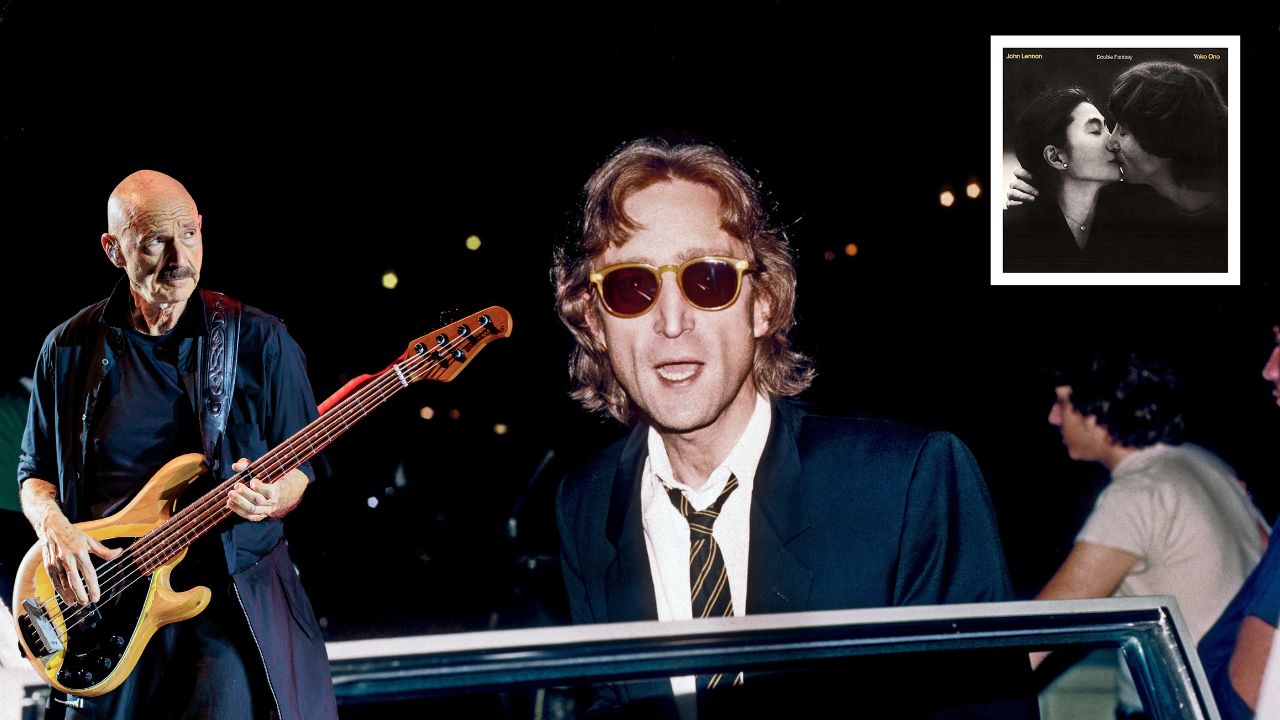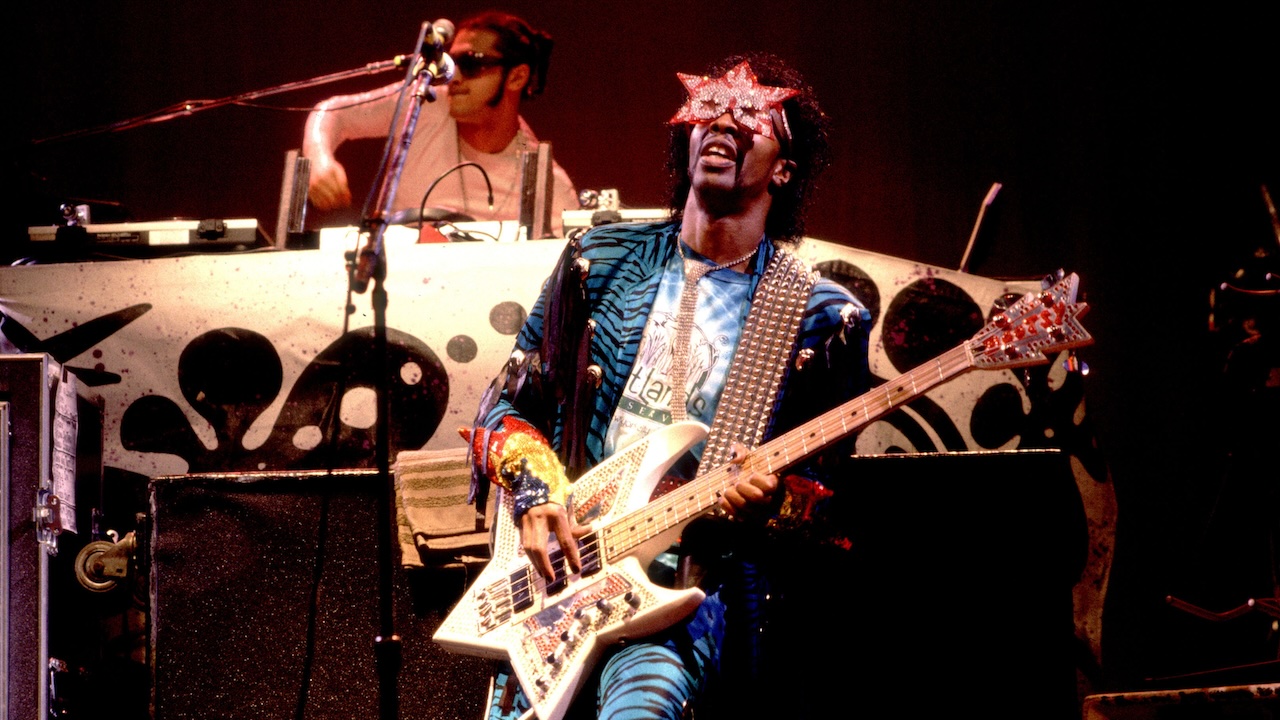John Lennon: “Willie Weeks was supposed to do it, but he was doing a George Harrison session”: In August 1980 John Lennon could have called just about any bass player on Earth. He went with Tony Levin
The King Crimson bassist recalls the making of Double Fantasy and why he laughed at The Beatle’s first ever words to him

Since cracking the New York studio scene in the early 1970s, Tony Levin has enjoyed one of the most enviable existences in bassdom. He's played on countless records, he's a core member of the envelope-pushing King Crimson, and he’s worked closely with Peter Gabriel since 1977. By 1980 his legacy had grown to include sessions for Pink Floyd, Yes, Paul Simon, and John Lennon, who had been writing for his Double Fantasy album.
The former Beatle had already enlisted producer Jack Douglass and a studio band that included guitarists Hugh McCracken and Earl Slick, keyboardist George Small, and drummer Andy Newmark, when he learned that bassist Willie Weeks was unable to make the session – and that the band wanted Levin to replace him at New York’s Hit Factory.
“We got the bass player by default,” said Lennon. “Because Willie Weeks was supposed to do it. It turned out he was doing a George Harrison session and he’d booked for that a long time ago. Then we found Tony Levin, and I’m thankful for that now. He absolutely would just pick it up and play."
Speaking to Bass Player in 2014, Levin was a little unsure how he got called for the session. “I had worked before with Jack Douglas, and done many albums with Andy Newmark as a rhythm section, and even more albums with Hugh McCracken. I assumed one of them had recommended me for the session with John, but I still don’t know, really."
By 1980 Lennon was a full-time New Yorker, which Levin was totally comfortable with. “John came right up and said hi, and in a very straightforward, New York way, his first words to me were, ‘They tell me you’re good. Just don’t play too many notes.’ I replied, ‘No problem.’ He was thinking, ‘Oh, he must be one of those fast guys and I don’t want him ruining my music. He didn’t know it, but I actually don’t play too many notes. So that was the end of the discussion.”
Studded with hit songs – from I’m Losing You to I Don’t Wanna Face it – Double Fantasy showcased the impeccable bass guitar playing that had made Levin’s name as a top studio player. “John was very happy with my bass parts and completely left me to it,” said Levin. “The way he worked, we would spend a few hours just writing the song down, which is more than enough time to come up with a part you like. The band would do it and that would be the take. With someone like him, who gives the bass player such a good sense of what the song is about, it’s very easy to come up with an appropriate bass part.”
As a way of avoiding major publicity, the studio personnel were under strict orders to keep the sessions from the press. "We were asked not to tell anyone who we were working for, a situation I found quite silly. On the third day I got into a taxi and told the driver to let me off at 48th Street and 9th Avenue; he said, ‘Oh, that’s near the studio where John Lennon is recording.’ How did he know? He had heard it on the radio!”
All the latest guitar news, interviews, lessons, reviews, deals and more, direct to your inbox!
The studio sessions lasted about two weeks, and included songs for what would become Lennon’s follow-up posthumous release, Milk & Honey. “There was a talk of doing a world tour afterward,” said Levin. “But that never happened, sadly.” On the evening of December 8, 1980, John Lennon was shot dead in the archway of the Dakota.
Levin, Earl Slick and Andy Newmark did finally take to the stage together for a headline show at Liverpool’s Philharmonic Hall for the 2022 Beatleweek Festival, which Levin documented via his YouTube channel.
Double Fantasy is available to buy and stream.

Nick Wells was the Editor of Bass Guitar magazine from 2009 to 2011, before making strides into the world of Artist Relations with Sheldon Dingwall and Dingwall Guitars. He's also the producer of bass-centric documentaries, Walking the Changes and Beneath the Bassline, as well as Production Manager and Artist Liaison for ScottsBassLessons. In his free time, you'll find him jumping around his bedroom to Kool & The Gang while hammering the life out of his P-Bass.



